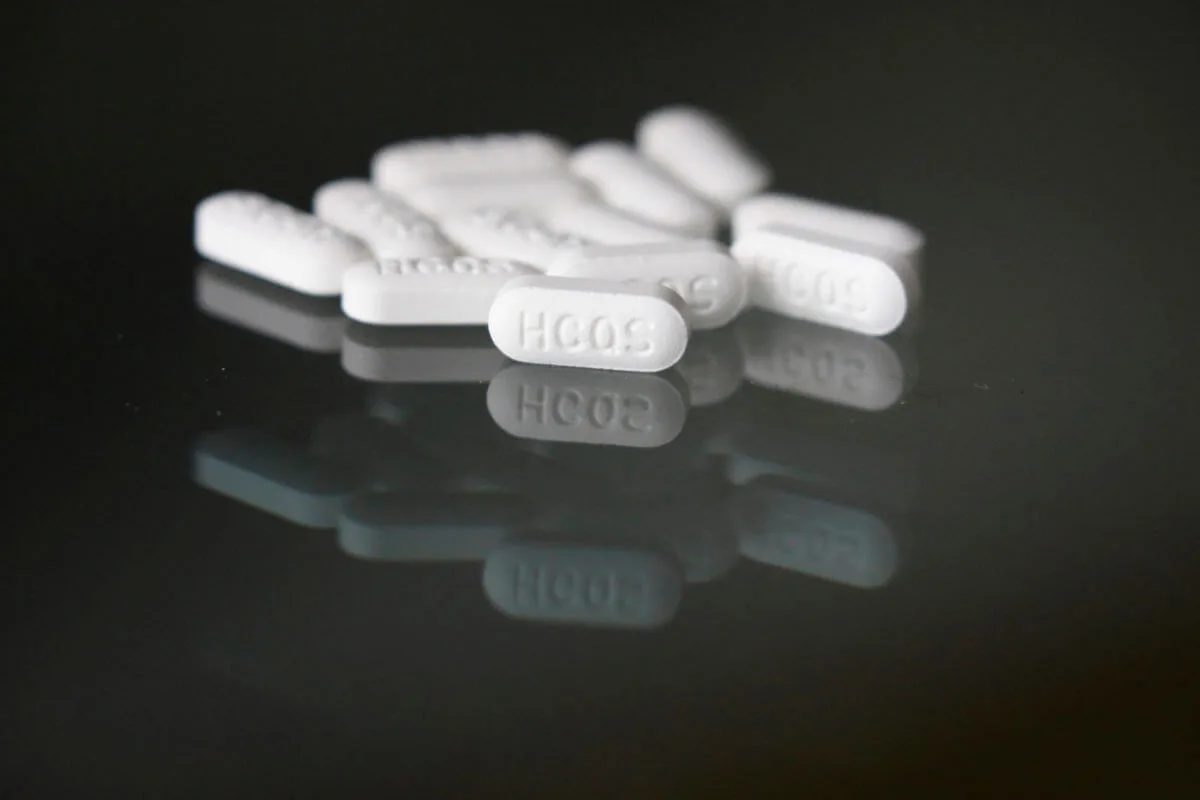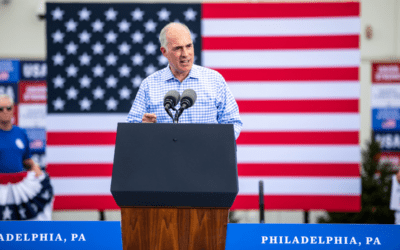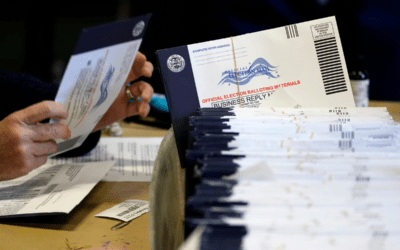
AP Photo/John Locher
Virus Outbreak Malaria Drug
Hydroxychloroquine has not been shown to be effective in treating COVID-19 and can cause serious side effects, including serious heart rhythm problems, severely low blood pressure, and muscle or nerve damage.
President Trump on Tuesday defended his use of the malaria drug hydroxychloroquine as a preventative drug against COVID-19, after a day of backlash following his announcement that he’s been taking the unproven drug for “about a week and a half now.”
During a press briefing on Tuesday afternoon, Trump uttered a litany of false statements while justifying his use of the controversial drug.
Below, we take a look at each of those statements one at a time.
“If you look at the one survey, the only bad survey, they were giving it to people that were in very bad shape. They were very old, almost dead.”
Trump appears to be referring to a study examining the effectiveness of hydroxychloroquine usage among patients in U.S. veterans hospitals suffering from COVID-19. The study was not a rigorous experiment, but with 368 patients, it’s been the largest analysis thus far of hydroxychloroquine usage as a treatment for COVID-19.
The study found that the drug showed no benefit and that there were more deaths among those given hydroxychloroquine versus standard care. About 28% of patients who were given hydroxychloroquine plus usual care died, versus only 11% of those getting routine care alone.
Trump said those given the drug were “very old,” but in reality, the median age of those given hydroxychloroquine was 70 years old. Trump himself is 73 years old. As for his claim that the patients were “almost dead”: They were indeed sick because they were suffering from COVID-19, which was the only reason they were given hydroxychloroquine in the first place.
“It was a Trump enemy statement.”
Trump said the study was a “Trump enemy statement.” The study was led by established medical experts, who conducted original research using data from the Department of Veterans Affairs. The study was supported by grants from the National Institutes of Health and the University of Virginia, and resources and the use of facilities at the Dorn Research Institute, Columbia VA Health Care System, Columbia, South Carolina.
“A lot of our frontline workers take it,” and later, “Many frontline workers won’t go there unless they have the hydroxy”
Some doctors hoarded the drug for themselves and their families back when it looked as if it might be more effective in treating COVID-19, but there have been no reports of widespread usage among frontline medical workers.
Several studies examining the safety and effectiveness of hydroxychloroquine among frontline workers, such as doctors and nurses, are underway, but results are not yet in.
“It doesn’t hurt people, it’s been out in the market for 60 or 65 years for malaria, lupus, and other things.”
Hydroxychloroquine has been around since World War II and is used to treat malaria, lupus, and rheumatoid arthritis, among other conditions, but the drug can actually be very dangerous, as the VA study found.
Citing reports of “serious heart rhythm problems,” the FDA also issued a warning last month, advising people not to take the drugs to treat COVID-19 unless they are in a hospital or participating in a formal clinical trial. The drugs can also cause a number of other side effects, including severely low blood pressure and muscle or nerve damage. The extremely long list of possible side effects, which can be found at the Mayo Clinic, also includes cognitive side effects, such as hallucinating, experiencing the feeling that others are watching you or controlling your behavior, and severe mood or mental changes.
Later in the afternoon, Trump once again ignored the science and falsely stated that hydroxychloroquine “doesn’t harm you,” when it is in fact, potentially fatal if taken under the wrong circumstances.
“I think it gives you an additional level of safety, but you can ask many doctors who are in favor of it.”
While some doctors have used the drug and are in favor of it, the vast majority of doctors and leading medical experts, including the nation’s top infectious disease specialist, Dr. Anthony Fauci, have expressed concerns about the drug and warned against using it, given its many potential side effects and the lack of conclusive evidence that it’s effective.
Trump is using the drug as a preventative measure, but there is no conclusive evidence of its effectiveness as a prophylactic, according to Dr. David R. Boulware, a medical professor and infectious disease specialist at the University of Minnesota.
Boulware is leading a study to determine whether the drug might be effective in preventing infection. That study involves 3,000 volunteers who have been confirmed to have COVID-19, are symptomatic and were exposed to someone with COVID-19, or are at high risk of contracting COVID-19, either because they are healthcare workers or live with someone who has the virus.
“It may be [effective]. It may not be. We do not know,” Boulware told NPR. “The only way I would recommend taking hydroxychloroquine is within a clinical trial.”

Central PA school board director cancels himself over gay guest speaker fallout
The Cumberland Valley School Board director resigned in protest on Monday after the board voted to reinstate Maulik Pancholy. The board originally...

New book details how Dave McCormick profited from 2008 financial crisis
Dave McCormick forged a relationship with Ray Dalio, the founder of Bridgewater Associates, in early 2008 and was rewarded with a job at Bridgewater...

18,000 PA residents who attended the Art Institute have student loans forgiven
The Biden administration announced last week they were forgiving student loans for 317,000 borrowers who attended the Art Institute. This will help...

Rep. Mike Kelly benefits from Inflation Reduction Act after voting against it
Congressman Mike Kelly was an outspoken critic of President Joe Biden’s climate change legislation but that didn’t stop him from using solar credits...

American Rescue Plan delivers computers and laptops for schools, libraries, nonprofits
President Joe Biden’s American Rescue Plan continues to deliver for Pennsylvanians. 12,000 residents annually will be eligible for computer devices...





